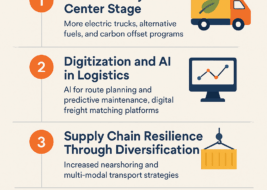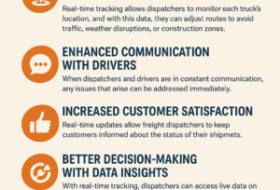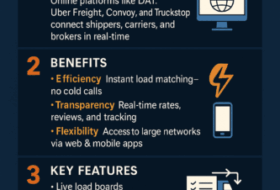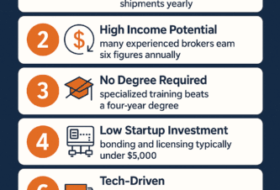In the bustling world of freight brokerage, where shipments crisscross the globe, adherence to rules and regulations isn’t just a choice; it’s a necessity. Understanding the nuances of Freight Brokerage Licensing and Operations is paramount for anyone aiming to establish a successful career in this industry. In this insightful guide, we unravel the complexities of licensing procedures and delve into the operational intricacies that define reputable freight brokerage businesses.
Understanding Regulatory Requirements
Freight brokerage operations are tightly regulated by federal and state authorities. Acquiring a license involves comprehending the specific requirements dictated by the Federal Motor Carrier Safety Administration (FMCSA). This includes demonstrating financial responsibility, submitting necessary documentation, and meeting bonding or trust fund obligations. A clear understanding of these requirements is the foundation upon which successful licensing rests.
Navigating the Application Process
Navigating the licensing process demands meticulous attention to detail. Aspiring brokers must complete the Unified Carrier Registration (UCR) and obtain a Motor Carrier (MC) number. Additionally, brokers must file for a surety bond or trust fund agreement, ensuring financial security for potential liabilities. Navigating these bureaucratic pathways requires patience and precision, ensuring that the application sails smoothly through regulatory channels.
Ensuring Legal Compliance
Compliance with legal regulations doesn’t end with the issuance of a license. Brokers must stay vigilant, continually updating their understanding of ever-changing laws and regulations. This includes compliance with the Food Safety Modernization Act (FSMA) and adherence to the Electronic Logging Device (ELD) mandate. Remaining abreast of legal developments safeguards both brokers and clients, ensuring seamless operations within the boundaries of the law.
Freight Brokerage Operations: The Engine of Success
Building Robust Operational Frameworks
Successful freight brokers don’t just secure deals; they orchestrate seamless operations. This involves establishing robust frameworks for tracking shipments, managing documentation, and communicating effectively with carriers and shippers. Utilizing cutting-edge software solutions ensures real-time visibility into shipments, allowing brokers to anticipate and mitigate potential issues swiftly.
Negotiating Win-Win Contracts
Effective negotiation lies at the heart of freight brokerage operations. Brokers must strike a delicate balance between satisfying carriers’ financial expectations and meeting shippers’ budgetary constraints. Mastering the art of negotiation results in win-win contracts, where all parties involved feel valued and satisfied. These positive relationships often translate into long-term partnerships, fostering business growth.
Embracing Technological Advancements
In the digital age, embracing technological advancements is not just a choice; it’s a necessity. Advanced freight management systems, route optimization software, and digital documentation tools streamline operations, reducing manual errors and enhancing efficiency. Brokers who harness the power of technology gain a competitive edge, delivering superior services to their clients.
Conclusion: Smooth Sailing Ahead
Freight brokerage licensing and operations are the cornerstones of a thriving business in the logistics industry. Understanding the intricacies of licensing requirements, coupled with the implementation of efficient operational strategies, sets the stage for success. By staying compliant, embracing innovation, and nurturing positive relationships, freight brokers navigate the seas of this dynamic industry with confidence. As you embark on your journey, armed with knowledge and operational acumen, anticipate smooth sailing ahead, where every challenge becomes an opportunity for growth and every shipment paves the way for a prosperous future.
Growth + Change = Opportunity! How are you going to capitalize on the opportunity as a freight broker, agent, dispatcher or box truck carrier?








